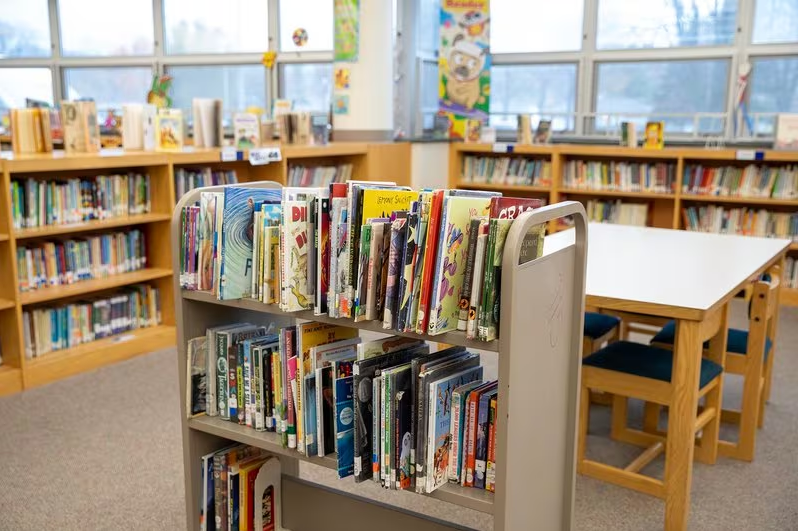Literacy, vouchers, and IPS: Indiana education issues we’re watching in 2024
This story was originally published by Chalkbeat. Sign up for their newsletters at ckbe.at/newsletters.
It may be a new year on the calendar, but January marks the halfway point of the school year and the start of the legislative session in Indiana. And there’s no shortage of education news and issues to watch.
Here’s five topics we’re watching in 2024:
How students learn to read
No surprise here, but reading will likely get a lot of attention, just like in 2023.
Lawmakers passed a new state law in 2023 that requires school districts to adopt a curriculum that’s aligned with the science of reading. The law also specifies that districts are no longer allowed to use literacy curriculum that rely mostly on the three-cueing model, in which students use context clues and pictures.
The new law grew out of concerns held by lawmakers and education officials about students’ reading ability, and our story about what it means for students, teachers and schools was our most-read story of 2023.
When discussing next year’s legislative session, lawmakers said they want to continue to address literacy by looking into Indiana’s third grade retention laws for students who don’t pass the state reading exam, the IREAD-3.
2024 elections feature gubernatorial, IPS school board races
The new year means that it’s a big election year — and not just because there’s a race for the White House.
Here in Indiana, there’s an election for governor with no incumbent, since term limits prohibit Gov. Eric Holcomb from running again. There are multiple candidates on the Republican side and former Indiana Superintendent of Education Jennifer McCormick on the Democratic side.
At the local level, four of the seven seats on the IPS Board of Commissioners are up for election in November, plus there will be school board elections across the state.
Rebuilding Stronger becomes reality for IPS
Approved by the Indianapolis Public Schools board in fall of 2022, Rebuilding Stronger is the district’s sweeping overhaul that aims to address pressing challenges of declining enrollment and educational inequities for students of color.
The Rebuilding Stronger rollout started this school year with the closure of several schools. But the bigger piece begins in the 2024-25 school year, when grade reconfigurations at the elementary and middle schools start, along with expanded academic programs and enrollment zones.
The district is working hard to make sure families know their options for the coming year with an invitation for families to “Choose your IPS.”
The enrollment period is underway, and IPS reported in early December that applications were up from the same time last year by about 470 families.
The future of old IPS school buildings
Per state law, school districts must offer closed school buildings to charter schools to buy or lease for $1. But the law comes with exemptions, including one added this year for districts that share funds from voter-approved property tax increases for operating or safety expenses with an “applicable charter school.”
What that new exemption means is the focus of a legal dispute between IPS and the state that will likely continue into the new year. The outcome will determine whether the district can sell the buildings or must essentially give them to charter schools that could enroll former IPS students.
IPS filed a lawsuit in August against Attorney General Todd Rokita and state board of education officials, arguing that the school district is exempt from the state law. A Marion County judge sided with the district, and Rokita appealed the ruling. In the meantime, the IPS has paused the sale of closed buildings, but the district plans to lease one of the facilities (which it previously voted to sell to a nonprofit) while the court battle plays out.
More students using vouchers
Earlier this year, lawmakers expanded the state’s voucher program to make nearly all students eligible to receive public money to attend private school. Indiana was one of several Republican-led states to do so recently.
Roughly 97% of students now qualify, and state projections show that participation could increase by nearly 42,000 students within two years. And in November, we had our first glimpse into what the participation looks like.
More than 69,000 Choice Scholarship applications were approved during the first round of the program for the 2023-24 school year, per the Indiana Department of Education. That’s a record number. And it’s likely to rise after the second application period, which closes in January.
Chalkbeat Indiana reporters Amelia Pak-Harvey and Aleksandra Appleton contributed to this article.
MJ Slaby oversees Chalkbeat Indiana’s coverage as bureau chief. She also covers access to higher education and Warren Township Schools. Contact MJ at mslaby@chalkbeat.org.
Chalkbeat is a nonprofit news organization covering public education.
